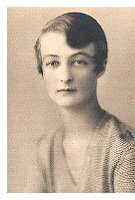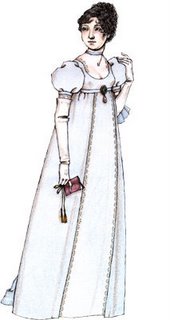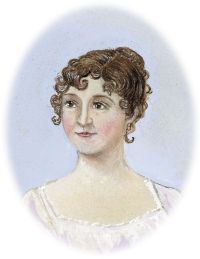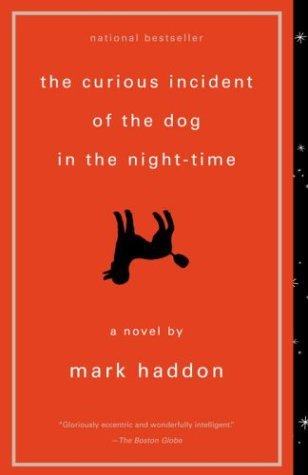What do you make of Mrs. Jennings and the role she plays in the narrative? The narrator is constantly making fun of her and pointing out her foibles, particularly her blindness to the true nature of Lucy Steele, and yet she is held up as a model of good-heartedness and sincerity. Of all the husbandless matriarchs in the book, she is the one — rather than Mrs. Dashwood herself and Mrs. Ferrars and even Willoughby's rich aunt — who seems like JA's model of maternal love to me. And JA endows her with a wacky kind of prescience that makes her correctly predict at the VERY beginning of the book — as soon as we meet her — that Marianne will marry Col. Brandon (In Chapter 8: "She was perfectly convinced of it."). At the end of the book, when Marianne is sick, Elinor comes to truly love Mrs. Jennings, which is the narrator's signal to the reader, in case the reader didn't get it before, that she really is a woman of note — and not just some caricature of a silly society matron.
I think JA's favoring of Mrs. Jennings, the girls' de facto mother through most of the book, is also a sign of her democratic impulse. Mrs. Jennings' husband made his fortune in trade, and that sets her apart from the landed gentry who have all lived idly and forever off the incomes of their estates. She lacks refinement, but she compensates with a generous heart and a liberal spirit.
I love how she is introduced: "Mrs. Jennings, Lady Middleton's mother, was a good-humoured, merry, fat, elderly woman, who talked a great deal, seemed very happy, and rather vulgar. She was full of jokes and laughter, and before dinner was over, had said many witty things on the subject of lovers and husbands."
Compare the introduction of Mrs. Ferrars: "Mrs. Ferrars was a little, thin woman, upright, even to formality, in her figure, and serious, even to sourness, in her aspect. Her complexion was sallow; and her features small, without beauty, and naturally without expression; but a lucky contraction of the brow had rescued her countenance from the disgrace of insipidity, by giving it the strong characters of pride and ill-nature. She was not a woman of many words; for, unlike people in general, she proportioned them to the number of her ideas."


















